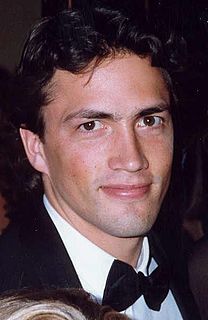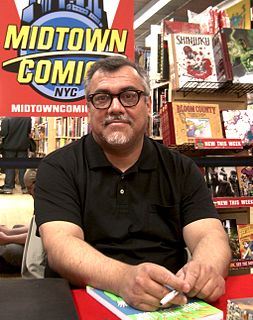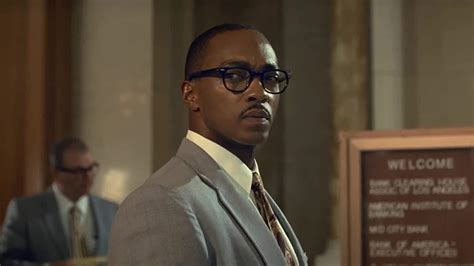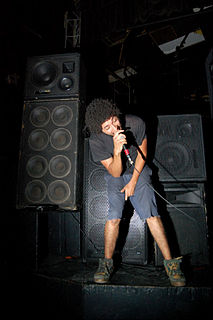A Quote by Paul Haggis
You can't plan for people to like your movies. I knew that people were not going to run in droves to the theater for the 'In the Valley of Elah.' I knew they might not want to see it, but I still had to the movie; I felt very strongly about it. Wanting to keep telling a good story is what you want to do, a compelling story.
Related Quotes
I think that people have to have a story. When you tell a story, most people are not good storytellers because they think it's about them. You have to make your story, whatever story it is you're telling, their story. So you have to get good at telling a story so they can identify themselves in your story.
There's no quit in our family. Our dad was the chief proponent of that. [On the set] we were constantly telling each other, Stay true to the story, we know that we love each other, keep communication open. We knew how unique this was-you're doing a movie that really could be put out there all over the world, and you're telling this personal story about your family.
I knew what I wanted to do when I set out. I knew that I wanted to write a book that told the story, obviously. I wanted it be comedy first, because I felt like there already had been childhood druggy stories that were very serious, and I felt that the unique thing here was that I was a comic and I could tell the story with some levity, and I have been laughing at these stories my whole life.
I knew I wanted to make a movie that looked decadent and expensive. I knew we would have to make every penny stretch and put as much of the budget onscreen as possible. So it starts with your heads of departments - your production designer, costume, hair and makeup designers. Picking the right people who were as committed as I was to telling the story as I was.
I knew that's where I was going. I knew we were going to Italy. You couldn't make this movie in America at this price. I knew it was going to be big. I knew there was going to be a ship involved and that there was going to be a set as big as the ship. I thought, well, here we go. But I knew that was where he was headed. He had been going this way for some time. All directors, once they have some success, they want to spend a whole heck of a lot of money. (Something else can't hear.)
The thing that I think a director has to have in order to make a movie really work, and to certainly make a film that feels personal, is that you have to have a sense of the feeling that you want to create in people, the tone which you want to tell the story, and the basic themes you want to come out. You can't compromise on those because you are then not making the movie that you are going to be good at telling.
I never want movie theaters go away. It is the greatest time out on the town. You go out, it's a great place to go, great location, great hang, great date, good place to be with friends. But as an actor who works hard at making movies, I am glad that no matter what people can see your movie on. It's hard to keep a theater for long time; there are so many movies, so when you leave a theater, you're just glad there's a life for your movie.
The experience of going to a theater and seeing a movie with a lot of people is still part of the transformational power of the film, and it's equivalent to the old shaman telling a story by the campfire to a bunch of people. That is a remarkable thing, if you scream and everyone else in the audience screams, you realize that your fears are not just within yourself, they're in other people as well, and that's strangely releasing.
Because I come from the theater, I use the images of the theater and of movies a great deal when I write. I see the story in my head. I have to break down the outline of a story first. I have to know where I'm going. Usually I have a good beginning and a good ending, and then I think, "Now I have to find my way through it."
I want to tell the story. Mostly, when you see rock movies, it has to be this over-the-top thing. I want to give people a Bret Michaels movie where they see that my life is a comedy of errors. I also want to show my fans how to get through the kind of troubles that would leave most people flat on the floor.





































